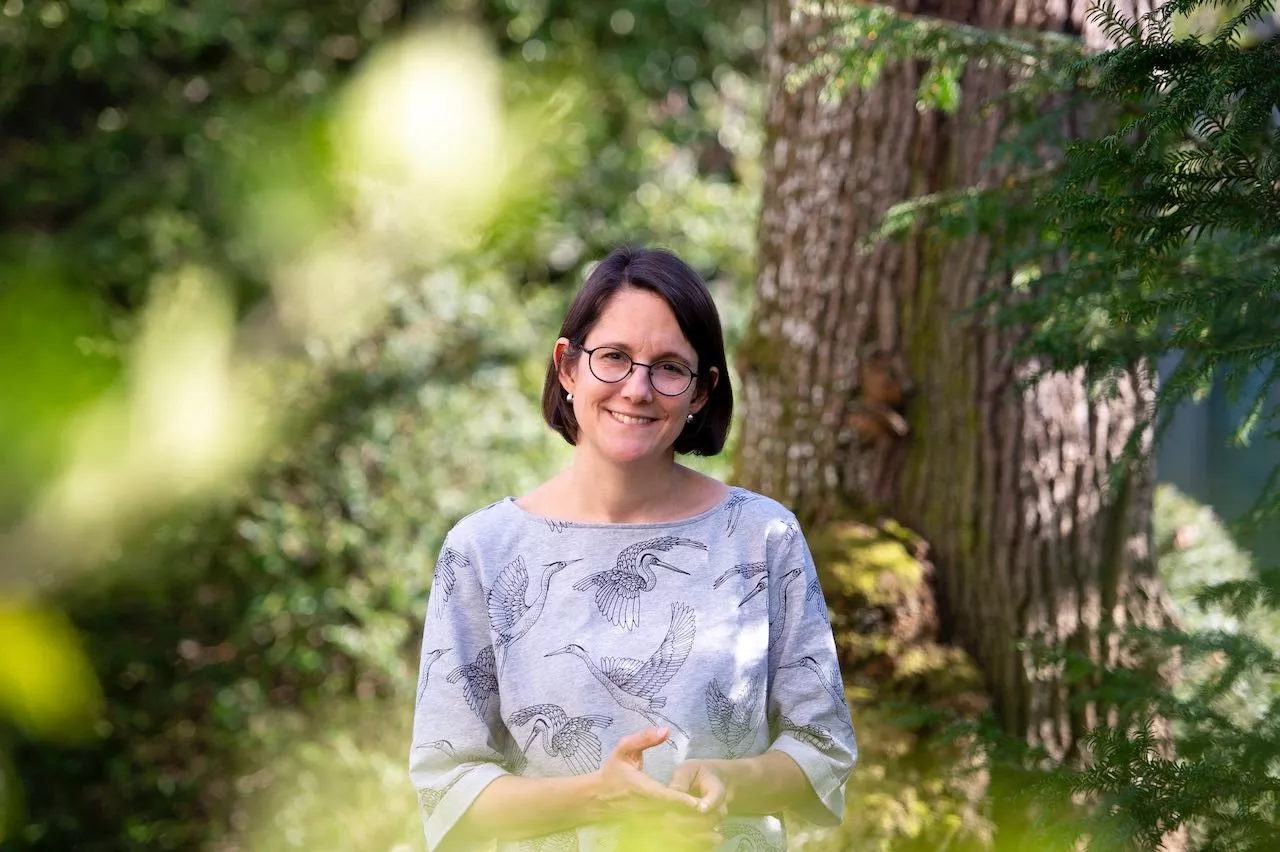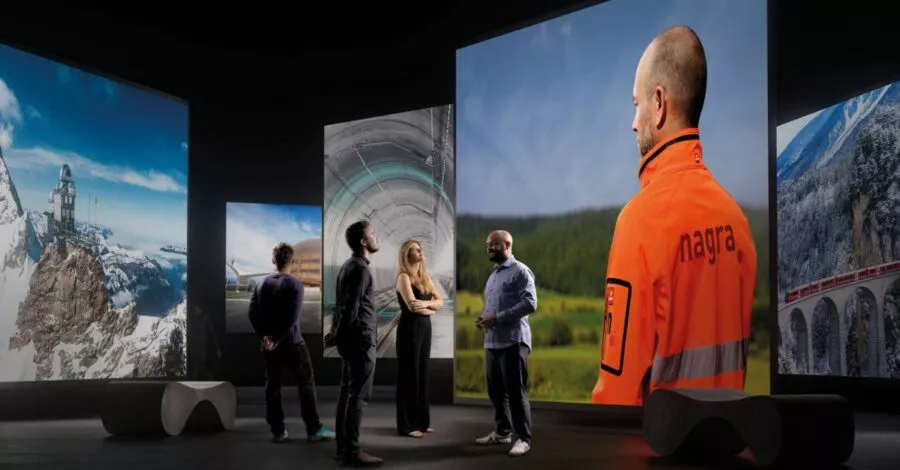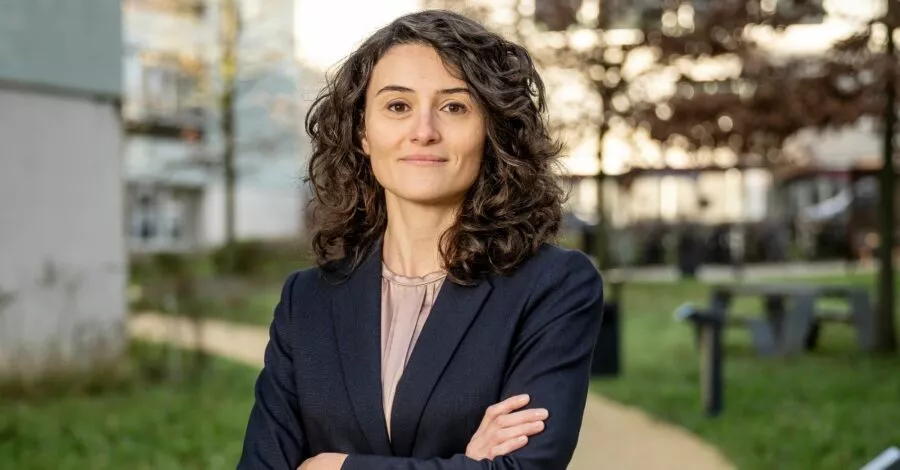
Ms Deplazes, in Switzerland, radioactive waste must be disposed of in such a way that retrieval remains possible. This is required by law. Should retrievability also be required on ethical grounds?
I would say yes. There are good arguments for that. For me, the strongest argument is that, with retrievability, the decision on whether to leave the waste in the repository is postponed by several generations. This gives these generations a say in this important issue. An additional aspect, of course, is that of safety. Should something unexpected occur, it would still be possible to retrieve the waste. However, there are also ethical positions, such as utilitarianism, which focus on the need to stay open to the possibility that it will one day be possible to recycle the waste, which would decrease disposal problems and create further benefits.
Retrievability leaves all options open for future generations. If they want, they can retrieve the waste. If they do not want to, they can close the repository. Leaving options open: what could be ethically wrong with that, you might think.
Unfortunately, the issue is not that simple. On the one hand, one can argue that we should involve future generations in deciding what to do with the waste. On the other hand, this means that we would burden them with some of the responsibility. If the decision turns out to be wrong in the long term, future generations would “bear part of the blame”. In addition, they would be responsible for maintenance and monitoring until the final closure of the repository.
This means that we cannot take full responsibility for the waste while ensuring full freedom of choice for future generations.
It is difficult to provide both options at the same time. The Swiss disposal concept envisages that the waste has to remain retrievable without undue effort until the final closure of the repository. After closure, the repository will be and will remain passively safe, i.e. there will be no need for human intervention. People will no longer have to bear any responsibility for maintenance and monitoring.
It will still be possible to retrieve the waste, even if this will require greater effort. If future generations want to make this decision – for example, because they hope to use the waste – they could do so, but they would also have to bear the cost and responsibility for this decision. For me, this is a conclusive way of dealing with the conflicting goals.
About Anna Deplazes Zemp:
Anna Deplazes Zemp is the ethics representative of the Nuclear Waste Management Advisory Board. She studied molecular biology and obtained her doctorate in biochemistry before completing a second degree in philosophy. She has worked in the fields of technology ethics and environmental ethics for many years. This year, she became ethics and philosophy lecturer in the biology department at the University of Zürich.
How does looking at retrievability from an ethical perspective differ from a scientific-technical perspective?
The two perspectives are interrelated and should not be considered separately. The technical perspective is about possibilities, opportunities and risks. Questions include: what is feasible and how? The ethical approach looks at other questions such as: should we do everything we can and why? As mentioned before, there are different arguments that partly reinforce, but also often contradict each other. We then discuss these arguments from an ethical point of view. Instead of relying only on experiments and figures, ethical arguments relate, above all, to the questions of how to weigh and interpret which principles, values or objectives. For this reason, you can take different ethical positions on almost any issue. The key element is to be able to transparently justify how you arrive at a recommendation. To make a concrete decision, however, society and politicians must decide on which arguments persuade them, which ones they consider to be especially important. The result is often a compromise that includes different positions.
How would you assess Switzerland’s overall approach to retrievability? Is it ethically correct or not?
As I said before, there are always different positions in ethics. Personally, I think the Swiss approach is correct: the objective is to eventually close the repository once and for all so that future generations do not have to be burdened with monitoring and maintenance. At the same time, we enjoy a degree of flexibility because waste retrieval without undue effort will still remain possible during the monitoring phase. This means that we are prepared in case something does not go according to plan. The fact that retrieval is required by law also shows that society feels a strong need for this. In terms of giving society a say, it is ethically important to take this wish into account.
Legally, the Federal Council will decree the closure, but there is no binding date. Nagra plans a 50-year monitoring phase prior to closure. How do you decide on the right moment for repository closure from an ethical point of view?
Again, the aforementioned trade-off between letting future generations decide for themselves and obliging those generations that produced the waste to assume responsibility plays a role here.
Of course, social and political developments over the next almost 100 years will have to be taken into account. What technical and financial possibilities will those generations have? Might they have to take care of other problems – for example, the consequences of climate change – and might they be grateful not to also have to bear responsibility for the repository? Against the background of all these uncertainties, flexibility until the final closure of the repository makes sense to me.
Similar articles
What does Switzerland think about the deep geological repository?
Switzerland is confident that it can realise the project of the century of deep geological disposal. A recent, representative survey shows that acceptance is high across the whole of Switzerland and in the affected region.



